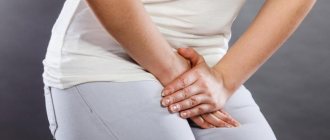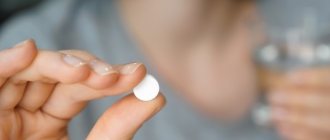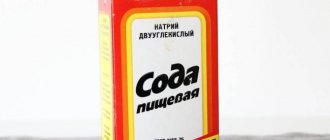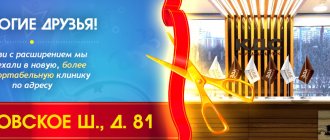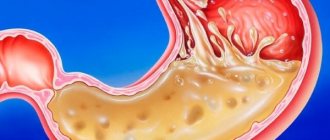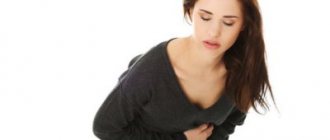From a medical point of view, hiccups are a sudden contraction of the diaphragm and intercostal muscles. This spasm against the background of a closed larynx causes the sound of hiccups and slight twitching of the body.
Science has not proposed a single reliable cause of hiccups, but there are hypotheses:
- drank something carbonated, and the gas bubbles irritate the muscles and nerves;
- drank too much alcohol;
- smoked;
- inhaled too much air - when we exhale more than we inhale, the level of carbon dioxide decreases, which disrupts the breathing pattern, and this can cause hiccups;
- ate too much too quickly;
- ate something hot or cold - hiccups can be caused by a change in body temperature.
Hiccups can also be triggered by fear, stress, anxiety or excitement.
People with chronic or frequent hiccups may also have a number of health problems - respiratory diseases such as asthma or pneumonia, and gastrointestinal diseases.
Hiccups can also be caused by taking certain medications.
There are many folk remedies that claim to work for hiccups, but most of them have no scientific basis. For example, scare a hiccupper, stand upside down, chew a lemon. Yes, sometimes they work, and sometimes they don’t. And there is no way to prove that they are effective for all people.
Meanwhile, there are several remedies that, according to doctors, really work.
Breathe in, inhale and exhale
Take a long, deep breath and hold your breath for 10 seconds. Then take another small breath and hold for another 5 seconds. And then exhale slowly.
This remedy is recommended by many doctors. The idea is to increase carbon dioxide levels and relax the diaphragm and airways.
Symptomatic therapy
Episodes of physiological hiccups go away on their own within 2-10 minutes. Sometimes, to relieve them faster, it is enough to be distracted, take a deep breath 2-3 times, hold your breath for a while, or drink a couple of sips of water. If the attack continues despite distracting and reflexive methods being taken, taking into account the patient’s condition, it is recommended to contact a local or family doctor, who will prescribe further examination, or call an ambulance if the patient’s condition rapidly worsens.
Before hospitalization and examination to stop hiccups, a medical professional can stimulate some reflexogenic zones in the face and exit points of the phrenic nerve, insert a catheter intranasally to a depth of 12 cm. Sometimes an intravenous infusion of calcium preparations has a relief effect. With a probable central and especially psychogenic genesis of hiccups, sedative herbal preparations, tranquilizers and antipsychotic drugs are used.
Attention (this is important)!
Intractable hiccups that last more than an hour can be a sign of intoxication or severe brain pathology. In such cases, delay in hospitalization significantly worsens the prognosis of the underlying disease, leading to the need for more complex drug regimens and emergency invasive interventions. An urgent call to an ambulance is necessary for hiccups combined with vomiting, disturbances in sensitivity, motor activity and consciousness. Repeated bouts of hiccups are also a reason for a thorough examination.
Shut your ears
The next time you hiccup, stick your fingers in your ears for 20 to 30 seconds. Alternatively, you can press on the soft areas behind the earlobes, just below the base of the skull. This sends a "relax" signal through the vagus nerve, which connects to the diaphragm.
If you can cover your ears and drink water at the same time, even better. Stick your fingers in your ears and drink through a straw. This option will put pressure on the vagus nerve, but will still benefit from constant swallowing - this is one of the most effective home remedies for hiccups.
List of sources
- Ivashkin V.T., Trukhmanov A.S. Evolution of ideas about the role of disorders of the motor function of the esophagus in the pathogenesis of gastroesophageal reflux disease. Russian Journal of Gastroenterology, Hepatology, Coloproctology 2010; 20(2):13-9
- Cherkasov M.A., Mokhanna M.I., Ibragimov Z.A., Rabadanov R.Sh., Kovalenko A.N., Aliev A.G. Persistent hiccups after epidural anesthesia for revision hip replacement // International Journal of Applied and Fundamental Research. – 2022. – No. 9. – P. 86-90.
- Shtulman D.R., Levin O.S. Neurology: A Practitioner's Handbook. 6th ed. 2008, 1024 p.
Breathe into a paper bag
The next time you have hiccups, breathe slowly and deeply into a small paper bag. This will increase the level of carbon dioxide in the blood and cause the diaphragm to contract more deeply to deliver more oxygen.
Stop if you feel dizzy.
To the point
Diseases of the digestive system: KP guide on treatment and prevention
Treatment
Non-drug
It is recommended for use before the use of medications; it is prescribed purely individually. The most common types of non-drug therapy are the following.
Changing the diet : reduce the single volume of food taken with an increase in the frequency of intake.
Use of mint infusion : helps relax the sphincters, should be freshly prepared, not used together with prokinetics that increase the tone of the muscles of the stomach and intestines and the lower esophageal sphincter.
Nasopharyngeal stimulation techniques:
- rinse your nose with cold water;
- suck cold water through a straw, swallow or suck small pieces of ice;
- swallow 1 teaspoon of dry granulated sugar;
- quickly drink two glasses of water;
- gargle with water;
- suck on lemon slices;
- swallow pieces of dry bread;
- inhale saline solution through a nebulizer;
- stretch your neck;
- massage the soft palate for 1 minute;
- stretch out your tongue with your fingers;
- press hard on your tongue.
Preventing irritation of the diaphragm : bend forward, pressing your knees to your stomach.
Stimulation of the C5 dermatome (interrupts stimulation of the hiccup neural arch):
- patting or scratching the back of the neck;
- placing a cold, safe metal object behind the collar (for example, a key);
- cold compress on the face.
Breathing manipulations:
- holding your breath;
- causing sneezing or coughing;
- frequent deep breathing (hyperventilation);
- breathing into a paper bag (hypoventilation);
- “Valsalva maneuver” (forced exhalation with the nose and mouth closed). Should not be carried out if you have a cold, because... the infection can penetrate into the middle ear cavity, and in patients with heart disease (increases blood pressure). Use caution in patients with pulmonary emphysema, primary/secondary tumor lesions of the lungs, so as not to provoke pulmonary hemorrhage.
Medication
Treatment for hiccups is determined by the cause of its occurrence. In palliative care, hiccups are most often caused by several causes; as a rule, an integrated symptomatic approach is used for treatment (see Diagram 1, Appendix 1).
Table 1 shows the medications and dosages used in the treatment of hiccups. The route of administration of drugs is oral (inside), unless otherwise indicated.
Popular questions and answers
We asked gastroenterologist Marat Zinnatullin a number of questions about hiccups.
What can cause hiccups?
Hiccups are, as a rule, a physiological reaction, an involuntary convulsive contraction of the diaphragm and intercostal muscles, closing the epiglottis and glottis. At the same time we hear a characteristic sound. As a rule, it begins suddenly, usually after overeating, hypothermia, alcohol intoxication or for other unknown reasons. It can also go away suddenly.
Are hiccups dangerous?
Usually, hiccups are a harmless condition that goes away quickly, but if the phrenic or vagus nerve is irritated, it can be long-lasting. Debilitating hiccups, as a rule, are a symptom of damage to the central nervous system; they can occur during intoxication, diabetes, coma, stroke, traumatic brain injury, and many diseases of the gastrointestinal tract (GIT).
Symptoms
Whatever the origin of hiccups, involuntary spasms of the diaphragm are accompanied by indecent loud sounds that attract the attention of others. However, their frequency of occurrence and duration vary. Persistent hiccups, lasting more than two days, occur with pathologies of the chest and abdominal organs. In this case, the symptoms of the underlying disease must be identified: cough, chest pain or bloating, belching, heartburn, bitterness in the mouth, pain in the epigastric region or near the navel. Intractable, persistent hiccups continue for months and most often have a central origin, that is, associated with damage to the brain or spinal cord. At the same time, symptoms characteristic of a particular disease will also be identified ( headache , dizziness , convulsions , lack of coordination, deterioration of vision and hearing, impaired movement in the limbs). The diagnosis is confirmed by MRI or CT scan of the brain.
Solutions to the problem
Babies may develop hiccups when they are cold
It is necessary to eliminate long-term hiccups taking into account the root cause of its development. If attacks are rare, then there is no need to worry and deal with the problem specifically. In other situations, it is undesirable to ignore hiccups, since they can indicate extremely dangerous diseases of the body.
Treatment for hiccup attacks begins with diagnosis. First, you should collect a history of the problem. To put it simply, carefully analyze the circumstances that have arisen and understand why the hiccups most likely appeared.
In some cases, you will also need to go to the clinic, which is especially important if there is a suspicion of the pathological nature of the attacks.
You will need to see a therapist at a medical facility. Taking into account the individual characteristics of a particular patient, this doctor will write a referral to:
- gastroenterologist;
- surgeon;
- neurologist;
- or a psychiatrist.
Depending on the individual characteristics of a particular clinical case, the measures taken to examine the patient’s body are determined. Usually you can't do without:
Tips on how to avoid hiccups after drinking alcohol
It is recommended to monitor your breathing so that it is even, try not to mix carbonated and alcohol-containing drinks. You should not take the latter on an empty stomach. It’s better to have a good snack, but without haste. Controlling the amount you drink is the key to good health in the morning and eliminating the risk of intoxication.
For a “civilized” feast, following these recommendations is realistic. However, a dependent person in the company of his own kind is unlikely to think about such “little things”, and also why hiccups after alcohol are considered not a very good thing. Relatives should take care of his health and well-being.
Proven methods for getting rid of hiccups after drinking alcohol
Often, neither the drinker himself nor his relatives take this phenomenon seriously, but this is a fundamentally erroneous opinion , because it is one of the main signs of severe poisoning of the body. Therefore, you need to know methods on how to get rid of hiccups after drinking alcohol.
The first action that needs to be taken is to induce vomiting to clear the stomach of alcohol. This will prevent an increase in the concentration of ethanol in the blood and eliminate discomfort by switching the nervous system to the gag reflex.
For hiccups caused by drinking alcohol, it is recommended to take foods with a strong taste: mustard, horseradish, citrus fruits, garlic, onions, pickled apples and cabbage. The latter contain succinic acid, which promotes the oxidation of toxic breakdown products of ethanol and their removal from the body, sobering up.
You can eliminate discomfort through breathing exercises. The simplest exercises are pulling up with your arms and bending down while holding your breath. You need to do 10-15 repetitions. Gymnastics will not only relieve discomfort, but also improve the functioning of the cardiovascular system and, accordingly, overall well-being. It is better to do gymnastics in the fresh air or in a well-ventilated area . You can improve your well-being by walking, which promotes:
- improving blood circulation;
- eliminating oxygen starvation of cells;
- normalization of metabolic processes;
- improving the functioning of the bronchopulmonary system;
- sobering up;
- normalization of sleep and wakefulness.
In the question “how to get rid of hiccups from alcohol,” the use of unconventional, extraordinary methods can help, such as distracting attention through conversation, an interesting movie, a computer game, or communication on social networks. You can eliminate discomfort and improve your overall well-being by drinking good quality water or green tea without sugar. However, all of the above makes sense if you stop drinking alcohol immediately after discomfort occurs.
What else can you do if hiccups after drinking bother you for a long time?
Fighting this phenomenon on your own is much better than not paying any attention to it. However, there are times when this is not enough and the discomfort continues for a day or even more. In this situation, medical intervention is necessary.
Most often, to treat hiccups, the patient is prescribed a course of special inhalations that necessarily contain CO2, which has already been mentioned, as well as its effect on the body. Toxins are also removed using a variety of sorbents, which will not only rid the body of toxic substances, but also increase immunity and restore microflora.
Many patients also undergo various procedures, such as treatment with psychotropic drugs and anticonvulsants, blockade of the nerve endings of the diaphragm, and examination of the stomach (tubing, etc.).
In particularly severe cases, surgery may be necessary. So, it is possible to use a catheter, with the help of which the nerve endings of the diaphragm will be affected, forcing the body to abstract from hiccups and switch to other reflexes.
